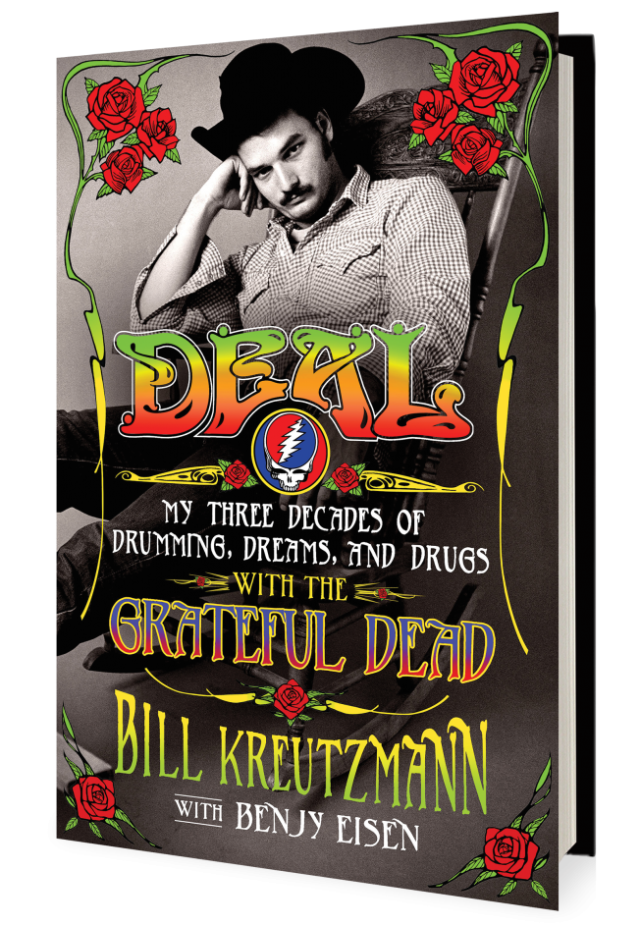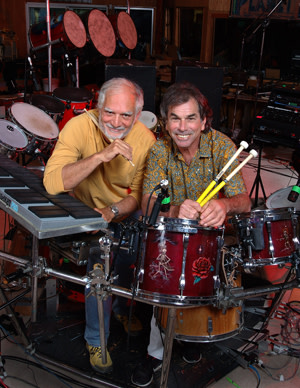The Grateful Dead's Rhythm Devil Blows Through Town

From 1965 to 1995, drummer Bill Kreutzmann, now a digital artist and famously unpretentious local of Kauai, played over 2,300 Grateful Dead shows. That’s enough sex, drugs, and rock ’n roll to fill the 400-plus pages of his new memoir Deal: My Three Decades of Drumming, Dreams, and Drugs with the Grateful Dead.
This month, Kreutzmann—accompanied by co-writer Benjy Eisen of Rolling Stone—brings his book tour to Powell’s. Kreutzmann’s timing is still as sound as his improvisational drumming; this summer, the Grateful Dead’s final Fare Thee Well Tour will put the Dead to rest.
A half-century of truckin’ produces a lot of memories—and memorabilia (over 100 books have been written on the band in the last forty years, and at least three will be released this year). What will Kreutzmann’s tome add to the canon? We collect a few thoughts from past, the present, and future.
Drumming
As the Fare Thee Well Tour makes its final circuit, expect Kreutzmann’s presence to hit like an acid flashback at a family reunion, as he morphs into the Dead's “Rhythm Devil”—agitating the skins with co-drummer Mickey Hart. The two have a famously tight forty-year relationship that Hart, in a recent interview, called "telepathic" and "a rhythmic miracle."

Kreutzmann and Hart in 2009. Photo credit: Relix Magazine.
Drugging
1960s psychedelic heroes teem in Deal: Aldous Huxley makes a surprise appearance, complimenting Kreutzmann's drumming in an Arizona middle school, followed later by Ken Kesey, Owsley Stanley, Janis Joplin, John Belushi, and of course Jerry Garcia, whose addiction to heroin is the stuff of legend. According to Kreutzmann, drugs were the best thing to ever happen to the band, if also a major factor in Garcia's heartbreaking slide toward death. "[LSD] is not something we do [as a band] today," Kreutzmann—who is open about his ongoing use of psychedelics— told Relix Magazine earlier this year, "but it really opened us up for playing and not making so many rules."
Dreaming
To most Americans the 1960s still represent both the giddiness of dreaming big, along with the prospect of losing big-time: choking, compromising, selling out to the Man. Both themes loom large in Kreutzmann's memoir. But, as Hart implied in a separate article for Relix Magazine, Kreutzmann's focus has always been on music and its ability to touch people. "I’m not interested in the good performance, it’s gotta be emotional,” Hart said. “Otherwise I have failed. I know when Bill gets up on the stage and he’s got that look in his eyes that it’s within reach."
Bill Kreutzmann and Benjy Eisen
May 21 at 7 pm, Powell's Books at Cedar Hills Crossing




